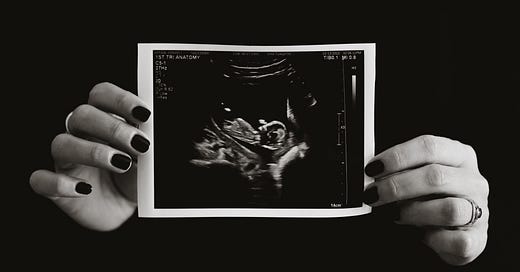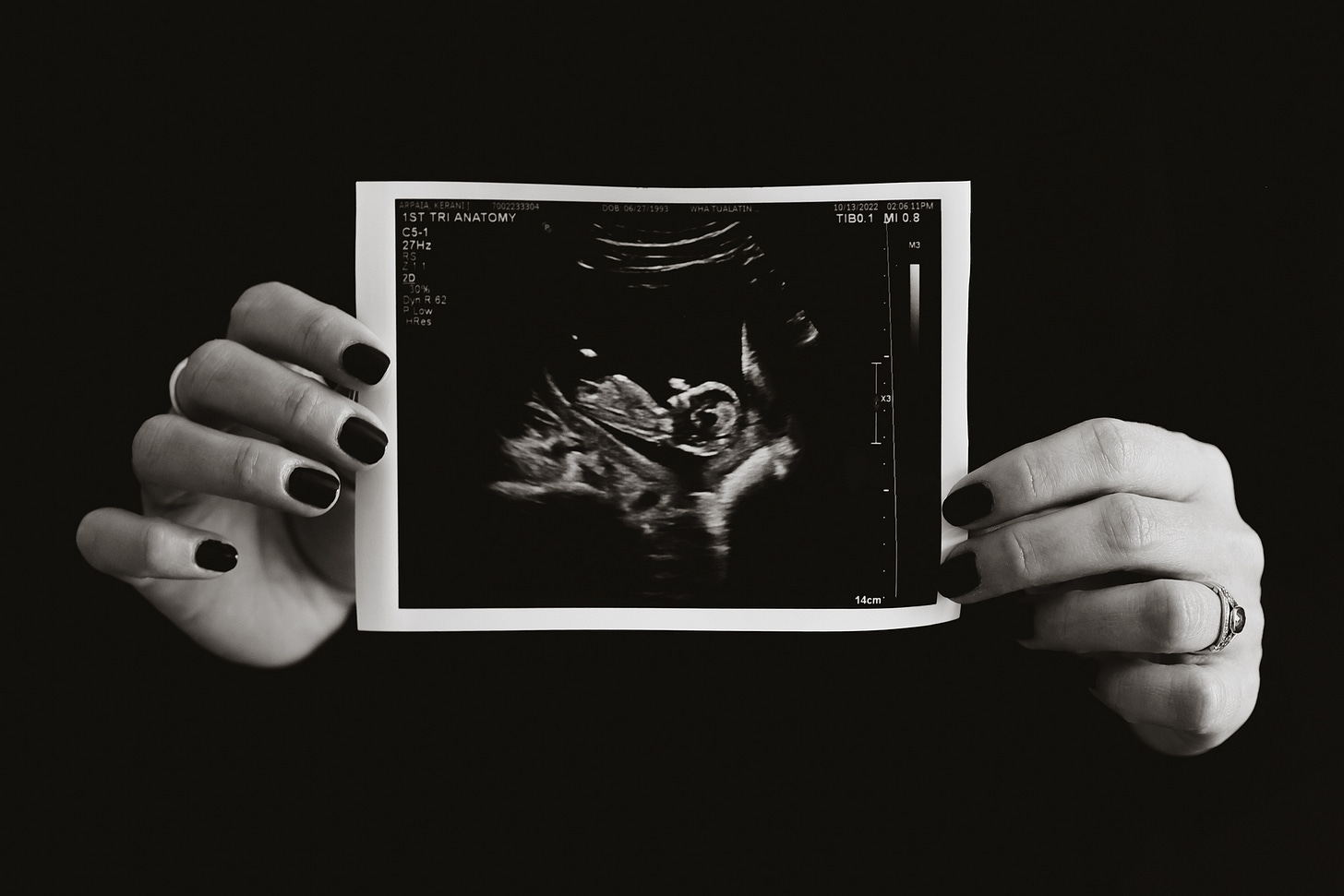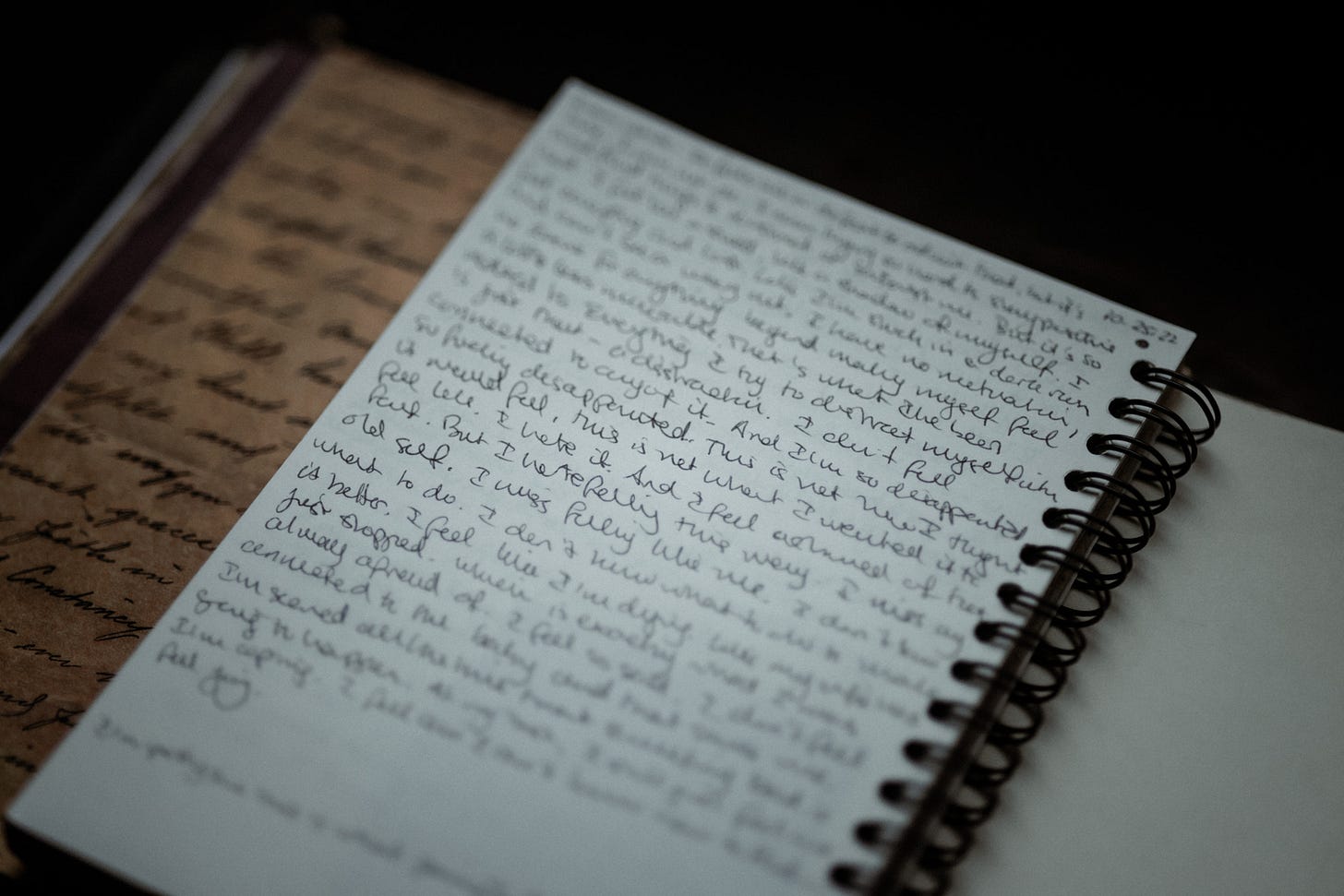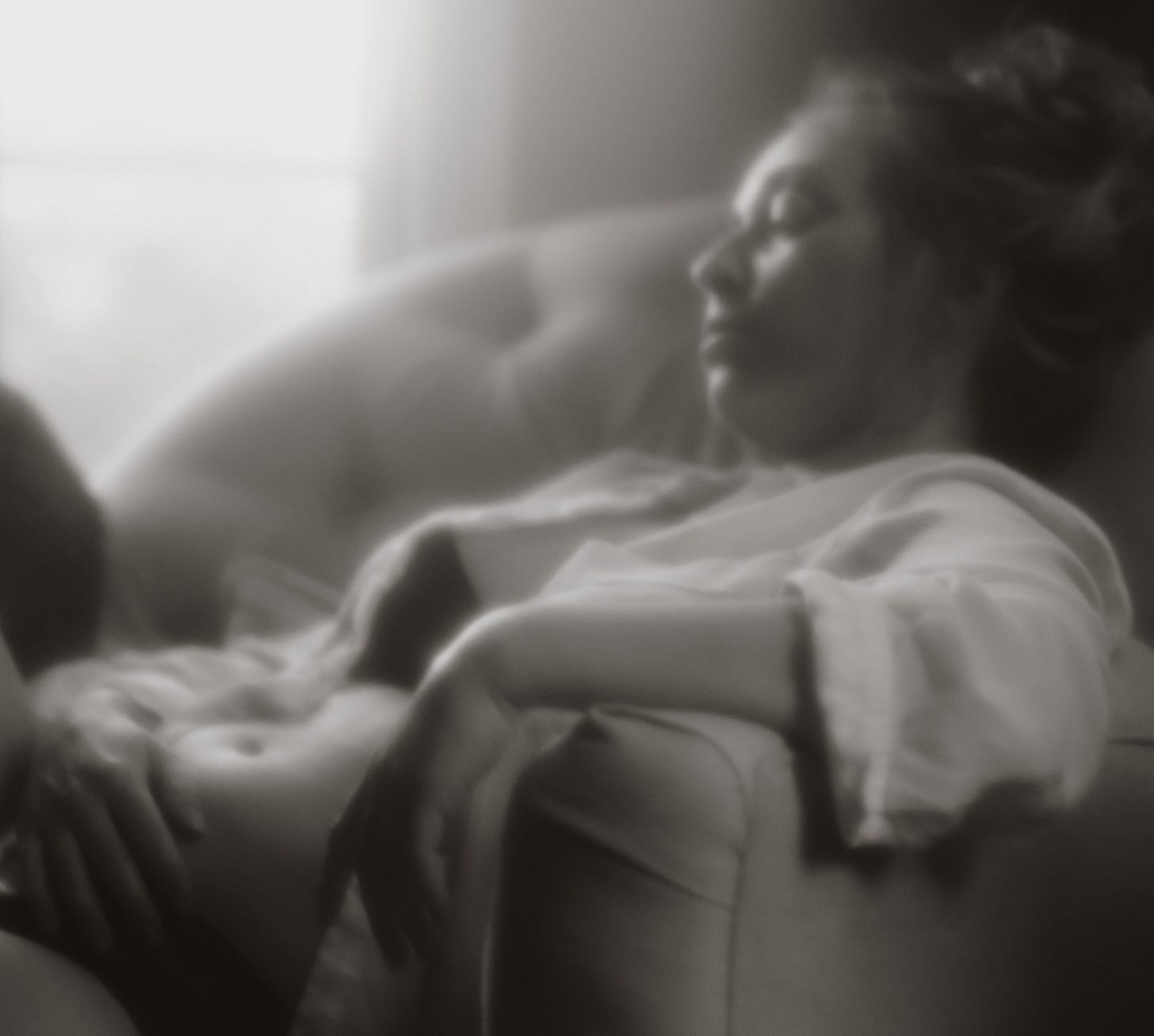The beginning can feel like an ending. I did not know this before.
That the delicate threads of identity I’d woven into the tapestry of my life would suddenly start to fray—a deft snip of Fate’s hand brought on by two faint pink lines in a plastic test window.
I’d thought I was ready to become a mother. Even if I knew that nothing could actually prepare me for the responsibilities of parenthood, I’d thought I was ready to face that change. To invite it into my life as a welcomed guest, give it a room and a meal, and cozy up for a long extended stay. Conceptually, I knew that my body would change. That I would feel sick, that I would be tired and have less energy for the things I normally did; but I thought those shifts would be gradual, a nine-month build up leading to the life-altering event of bringing a new life into the world.
Change did not find me gentle or slow though. By week six, I was thrown deep into the waters of my own subconscious as every insecurity, every anxiety, every mental health struggle and body image trigger that I was normally able to cope with came raging to the surface. It was like being thrust into a closet with the darkest part of my own shadow. Activities I enjoyed, that I felt made up an essential part of my identity, I suddenly had no energy to do. The painful expanding of my body killed my sex-drive and made every day a struggle to find just a baseline of comfort.
I was not prepared, but how could I have been? Most cultural presentations of motherhood I’d seen up until that point focused on the good times, on how magical the experience could be. A beautiful new chapter. Everything was coated in a sugary dust, sparkling and bright. Even the moms I knew and trusted had mostly given me cryptic messages: “I was really sick for a while” and “you’ll be tired and achy.” But these warnings were always followed with the reassurance of “But don’t worry, the second trimester gets better!” (Aside: I’m convinced that women suffer from some kind of maternity amnesia—a phenomenon that makes moms forget how difficult pregnancy can be. Because, otherwise, why the hell would we want to do it more than once?) It was only when I broke down to my therapist that I first heard the unfiltered truth, a shimmering veil pulled away with brutal honesty:
“The first trimester fucking sucks.”
And it did. It fucking sucked.
It wasn’t the physical discomfort, though that was difficult enough to manage: bloating and nausea and aching ligaments, not to mention the strange squishing feeling of having your organs rearranged. What made it so hard was that I felt like I was losing pieces of myself along the way. That each time a new symptom arose, it carved away at who I was as a person.
I used to work out every day, walking and practicing yoga; suddenly, I could barely find the energy to get dressed in the morning. My husband and I love food and have always enjoyed trying unique dishes; food became something I tolerated reluctantly because the less I ate the more nauseous I felt. Worst of all, my main passion, my art and drive to create—a core piece of my identity—dried up like a well. I was left parched at the top, pulling at an empty bucket and still being surprised that there was nothing left to give. It was devastating, frightening, and made me feel utterly lost. I had no desire for anything, except to find a way to make myself feel a little less miserable.
A voice in the back of my mind is telling me to pause here and clarify that it wasn’t all dire. I was able to enjoy my life and looked for the positive in my experiences as much as possible. What wore me down though was the constant managing—managing the emotions by looking on the bright side, managing the mental health struggles by using my coping mechanisms, managing the physical discomforts by recognizing patterns and trying to adapt to them. It was exhausting, like sailing a ship that’s constantly being buffeted by a storm. Most days, I could stay afloat; some days, the winds would calm and I’d get a reprieve; but others, the waves would swell and submerge me.
I’d flounder.
This is an entry from my diary that I wrote when I was thirteen weeks along:
I am trying so hard to stay positive and find things to distract or interest me. But it’s so hard. I feel like a shell, like a shadow of myself. Like I’m stuck in a dark room and can’t see a way out. And I’m so disappointed, so fucking disappointed. This is not how I thought it would feel, this is not what I wanted it to feel like. I hate it. And I feel ashamed of that fact. But I hate feeling this way. I miss my old self. I miss feeling like me. I don’t know what to do to make it better. I feel like I’m dying, like my life has just stopped, which is exactly what I was always afraid of. I feel so sad. I don’t feel connected to the baby and that scares me. I’m scared all the time that something bad is going to happen. At my best, I still just feel like I’m coping. I feel like I don’t know how to feel joy.
I realize now that I was probably struggling with some level of perinatal depression. I don’t share this to garner sympathy, but because I don’t think that these types of feelings get talked about enough. We don’t talk about the earth-shattering feeling of having your body no longer be in your control, the physical pain and discomfort of it changing, the volatile emotions that leave you feeling empty and raw. It wasn’t until I woke up sobbing uncontrollably and could do nothing more than sit on the floor of my shower, weeping and crying over and over again IamnotokIamnotokay, that I finally considered there might be something more going on with my emotions.
As I’ve opened up to other friends and moms about these feelings, I’ve realized that my experience isn’t necessarily uncommon. That the magical veneer of pregnancy wasn’t often the norm. But it took a lot of courage to admit how much I was struggling. I felt ashamed that my experience of pregnancy wasn’t aligning with what society had told me it should look like. The first trimester is a lonely time: you don’t want to tell too many people that you’re pregnant—because what if the unthinkable happened and something went wrong—but you feel so vulnerable and confused about what’s happening to you that you’re desperate for some reassurance. It was only when I opened up and spoke to more mothers that I began to unlearn the narratives of what I’d assumed pregnancy would be.
The timeliness of going through this during the autumn is that I am surrounded by reminders that death and rebirth are a part of life. Everywhere around me I see messages of letting go, and acknowledging the grief of that process. I am grieving my old self, knowing that even if she returns to me in future, it will be in a new form as a mother, never quite the same as before. In communion with my shadow, I’ve had to recognize and accept hard truths about myself. A benefit of this experience is that I’ve had nowhere to hide or distract myself from the reality of what I am feeling. One of my friends pointed this out to me, when I first shared that I was struggling with my lack of motivation to create. “You’re going to learn very quickly what your priorities are,” she said. “The things you can’t live without are the things that you’ll find a way to make time for.”
In folklore, the initiation of the Maiden into the Mother often involves some kind of catalyst. Think of Persephone, stolen to the underworld where she eats her pomegranate seeds. She gains a kingdom, but at the cost of the life and home she knew before. The sacrifice of these stories makes all the more sense to me now that I am experiencing the transition myself.
As the world outside descends into the underworld of winter, I am giving myself space to dwell in the darkness and experience this change. Seeds when they are planted do not burst forth into the light immediately. They rest, safe in the cocoon of the earth’s shadow, until they are strong enough to blossom.








I love this post. The images and words are beautiful. I remember struggling with anxiety, frustration, and confusion during my first trimester when pregnant with my daughter. I remember sitting down in the hallway of our little apartment and just sobbing into my knees. I think the changes I was experiencing felt so foreign, like something happening TO me rather than OF me. It's a bizarre and not altogether joyous feeling to realize that something other -- a whole other person-- is growing within you. And when they're born, you expect to know them. After all, you've carried them for nine months. But I was startled to realize my daughter was a stranger, a new person I had to meet and get to know. She had all of this personhood shining out of her eyes ... and I was expecting to see myself, I think. But oh no, not at all. Haha! Anyway, this really resonated with me! Thanks for sharing.
I felt that too. Culturally there is no support for that liminal space of parental becoming. Everything is about the child.